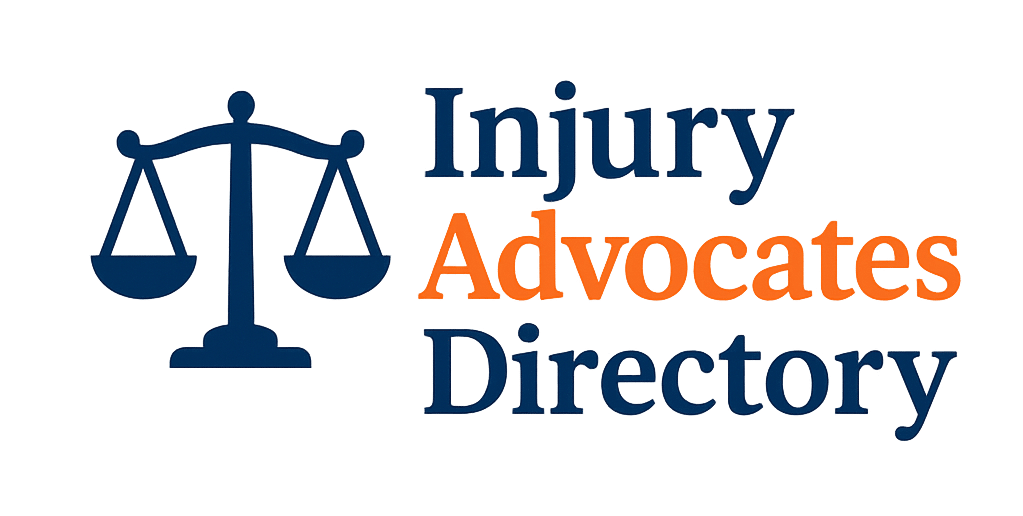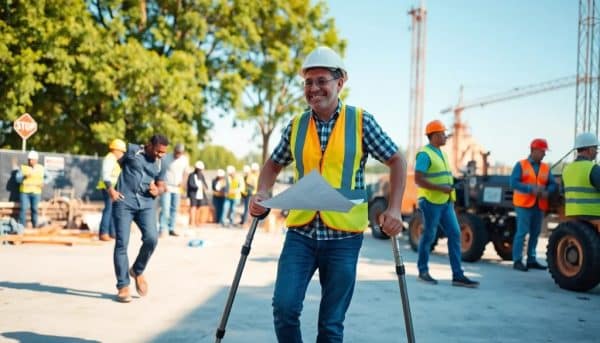Construction accidents pose a serious threat to workers, leading to a myriad of injuries that can significantly alter their lives. Understanding your legal rights is crucial for ensuring you receive the compensation you deserve in the aftermath of such incidents. This article explores the rights of injured workers and the steps they can take to protect themselves legally.
Was your safety ignored? Understanding your rights after a construction accident
In the construction industry, safety regulations are paramount, and workers have the right to expect a safe working environment. When safety protocols are disregarded, injuries in construction accidents can occur, leaving victims with not only physical injuries but also emotional distress. Workers have legal recourse if their safety was compromised due to negligence.
Victims of construction accidents can file workers' compensation claims to cover medical expenses and lost wages. This system is designed to protect employees and ensure they are not financially burdened following an injury. Additionally, if a third party, such as a contractor or equipment manufacturer, contributed to the accident, workers might pursue a personal injury claim against them.
It's essential to document all safety violations and gather evidence immediately after an accident. Witness statements, photographs of the scene, and medical records will be invaluable in supporting your claim and demonstrating that safety measures were ignored.
What steps should you take immediately after a construction injury?
Taking the right steps immediately after a construction injury can significantly impact the outcome of your claim. Here are the essential actions to take:
- Seek Medical Attention: Your health is the priority. Obtain medical care as soon as possible, even if your injuries seem minor.
- Report the Incident: Notify your supervisor or the designated safety officer about the accident. Ensure that it is documented in the workplace accident log.
- Document Everything: Write down the details of the accident, including time, location, and any witnesses. Take photographs of the scene if possible.
- Consult a Legal Professional: Reach out to a personal injury attorney who specializes in construction accidents. They can guide you through the complex claims process.
These steps are vital for protecting your rights and ensuring you receive the compensation you are entitled to. Early legal intervention can help navigate the intricate legal landscape and increase the likelihood of a successful claim.
Who can be held accountable for construction injuries?
Determining liability in construction accidents is not always straightforward. Several parties can be held accountable, including:
- Employers: Employers have a responsibility to ensure a safe working environment. If they fail to provide proper safety measures or training, they may be liable.
- Contractors: General contractors can also be held responsible for injuries occurring on-site due to their oversight and management of safety regulations.
- Equipment Manufacturers: If faulty equipment contributed to the accident, manufacturers can be liable for damages.
- Other Workers: In cases of negligence by fellow employees, they may also share liability.
Understanding who can be held accountable is critical in establishing the basis for a claim. Each case is unique, and the specifics will dictate which parties may be liable for injuries sustained.
How can a personal injury attorney assist you in construction accident claims?
Navigating the legal system after a construction accident can be daunting. A personal injury attorney can provide invaluable assistance in several ways:
First, they can help gather and organize evidence to support your claim. This includes collecting witness statements, medical records, and documentation of safety violations. Secondly, an attorney can aid in negotiating with insurance companies to ensure you receive fair compensation. Insurance firms often attempt to minimize payouts, and having a legal expert on your side can counteract this.
Moreover, a personal injury attorney understands the nuances of workers' compensation laws and can guide you through the process, ensuring all necessary paperwork is completed accurately and submitted on time. They can also represent you in court if your case goes to trial, fighting to secure the best outcome for your case.
Having professional legal representation can significantly improve your chances of a successful outcome, allowing you to focus on recovery.
What are common misconceptions about construction accidents?
Misunderstandings about construction accidents can lead to confusion and hinder victims from pursuing their rightful claims. Here are some prevalent misconceptions:
- Only serious injuries qualify for compensation: Many believe that only severe injuries warrant a claim. However, even minor injuries that disrupt work can be compensated.
- Workers cannot sue their employers: While workers’ compensation laws often prevent suing employers, victims may still pursue claims against third parties.
- All accidents are the worker's fault: Many people assume that accidents are due to worker negligence. In reality, poor safety practices or equipment failure often play a significant role.
Understanding these misconceptions is crucial for workers to navigate their rights effectively. Knowledge empowers victims to take the necessary steps toward securing compensation and achieving justice.
Why is it important to seek legal help after a construction injury?
After experiencing a construction injury, seeking legal help is vital for several reasons. An attorney can provide clarity on your rights and the compensation you may be eligible for, which can be overwhelming to navigate alone. They can also assist in understanding complex legal jargon related to your case.
Additionally, hiring a legal professional can expedite the claims process. Injured workers may face deadlines for filing claims, and an attorney can ensure all paperwork is submitted on time. Moreover, they can help identify all potential sources of compensation, including workers' compensation, personal injury claims against third parties, and more.
Legal expertise can also provide peace of mind during a challenging time, allowing you to focus on healing while your attorney manages the complexities of your case.
Frequently asked questions about injuries in construction accidents
How much can I sue for a work injury?
The amount you can sue for a work injury varies widely based on several factors. Generally, compensation can include medical costs, lost wages, and pain and suffering. Damages can be calculated based on the severity of the injury and the impact on your life. Consulting with a personal injury attorney can provide a more tailored estimate based on your specific situation.
Who is the legal responsibility for an injury?
Legal responsibility for a construction injury typically lies with the employer, contractors, or third parties involved, depending on the circumstances. If safety regulations were violated or negligence occurred, multiple parties could share liability. It’s essential to investigate the details of the incident to determine where legal responsibility falls.
What are some workers' rights related to injury?
Workers have several rights related to injuries sustained on the job, including the right to:
- File a workers' compensation claim: This includes compensation for medical bills and lost wages.
- Seek legal consultation: Workers have the right to seek legal assistance to understand their options.
- Report unsafe conditions: Workers can report safety violations without fear of retaliation.
Understanding these rights can empower workers to take action when injured.
What is the most common injury in construction that results in time off work?
The most common injuries in construction that lead to time off work typically include falls, which account for a significant percentage of construction accidents. Other prevalent injuries are those resulting from equipment-related accidents, including strains and sprains. These injuries can have long-lasting effects, underscoring the importance of workplace safety regulations.

